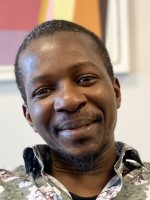Due to copyright reasons, an electronic copy of the thesis must be ordered from the faculty. In order for the faculty to have time to process the order, it must be received by the faculty no later than 2 days prior to the public defence. Orders received later than 2 days before the defence will not be processed. Inquiries regarding the thesis after the public defence must be addressed to the candidate.
Trial Lecture – time and place
See Trial Lecture.
Adjudication committee
- First opponent: Assistant Professor Siri Suh, Brandeis University, US
- Second opponent: Senior Researcher Karine Aasgaard Jansen, Chr Michelsen Institute
- Third member and chair of the evaluation committee: Associate Professor Kåre Moen, University of Oslo
Chair of the Defence
Professor Per Ole Iversen, University of Oslo
Principal Supervisor
Associate Professor Katerini T. Storeng, University of Oslo
Summary
In recent years, there has been a growing focus globally on the importance of essential reproductive health commodities. This includes drugs and supplies for safe motherhood, contraceptives to control fertility and drugs like misoprostol, that have been hailed as a revolution for making abortion safer and reducing deaths from abortion complications.
In contrast to public health approaches that frame such commodities as technological means to achieve demographic and maternal health outcomes, this thesis draws on medical anthropology and science and technology studies to explore how reproductive health commodities acquire different meanings and purposes as they circulate in society.
The thesis is based on ethnographic fieldwork conducted in Burkina Faso in West Africa, where contraceptives and misoprostol play important roles in efforts to address unwanted pregnancies and unsafe abortion. The fieldwork included participant observation; in-depth interviews with women of reproductive age, healthcare workers and informal drug vendors; and review of documents about national and international reproductive health governance.
Across three peer-reviewed publications, the thesis analyses the ‘social life’ of contraceptives at the intersection of formal and informal systems of reproductive health care, showing that healthcare workers and street drug vendors engage in ‘pharmaceutical diversion’ in disseminating misoprostol and knowledge about it to networks of individuals outside of the drug’s formal, regulated circuits. Meanwhile, women ‘domesticate’ reproductive health commodities to create new uses for them, whether using misoprostol as an emergency contraceptive or to induce abortion clandestinely, or using hormonal contraceptives to achieve social, romantic, or bodily aesthetic goals. Though reproductive health commodities help women exercise agency over reproduction, negotiating access to them also exposes women to violence and creates new forms of inequalities.
Additional information
Contact the research support staff.
